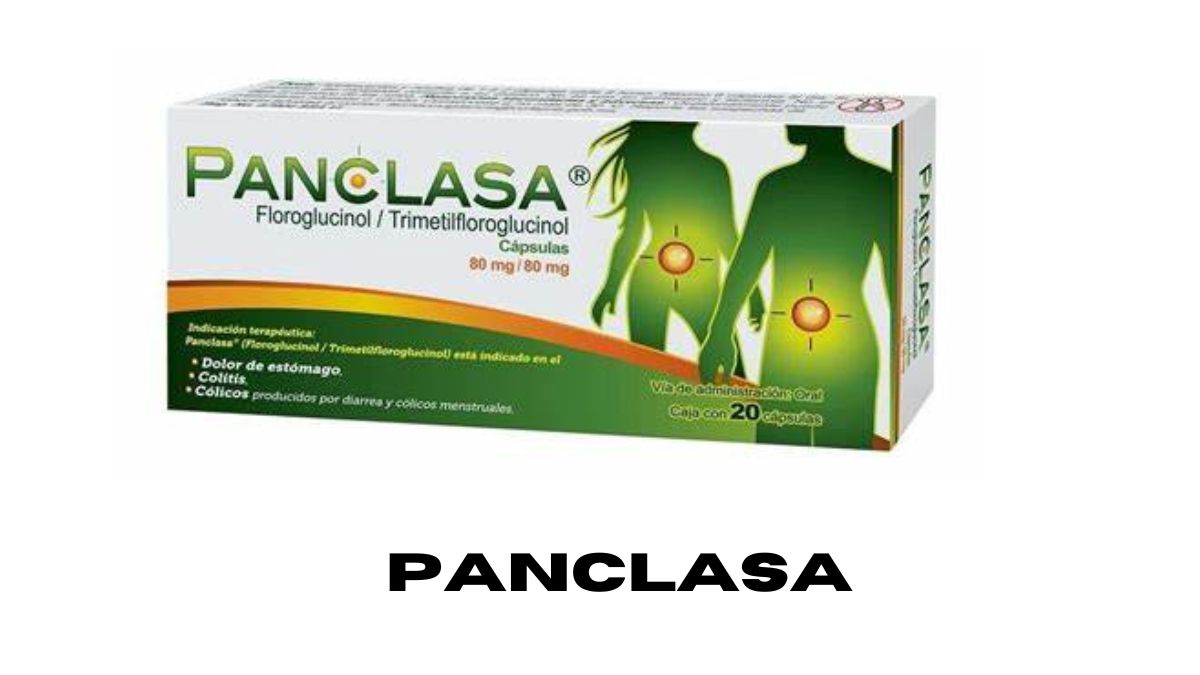General
Tah: Exploring the Nutritional and Culinary Delights

Tah, a creamy and versatile paste, has been a staple in Middle Eastern cuisine for centuries. Praised for its unique flavor and numerous health benefits, tah has garnered attention worldwide, finding its way into kitchens and restaurants across the globe.
What is Tah?
Tah, also known as tahini, is a paste made from ground sesame seeds. It boasts a smooth texture and a nutty flavor, making it a delightful addition to both savory and sweet dishes.
Origins of Tah
Historically, tah has its roots in the Middle East, where it has been consumed for thousands of years. It holds cultural significance in countries like Lebanon, Israel, and Greece, where it is used in various traditional recipes.
Nutritional Value of Tah
Tah is a powerhouse of healthy fats, primarily consisting of monounsaturated and polyunsaturated fats. These fats are beneficial for heart health and can help lower cholesterol levels.
High in Essential Nutrients
In addition to fats, tah is packed with essential nutrients such as calcium, iron, magnesium, and phosphorus. These minerals play vital roles in bone health, energy production, and muscle function.
Health Benefits of Tah
The high levels of monounsaturated fats in tah have been linked to a reduced risk of heart disease and stroke. Regular consumption of tah as part of a balanced diet may contribute to overall cardiovascular health.
Improved Digestion
Tah is rich in fiber, which promotes healthy digestion and regular bowel movements. Incorporating tah into meals can help prevent constipation and support gut health.
Rich Source of Antioxidants
Sesame seeds, the main ingredient in tah, are abundant in antioxidants like lignans and vitamin E. These compounds help neutralize harmful free radicals in the body, protecting cells from damage and reducing the risk of chronic diseases.
Boosted Immunity
The vitamins and minerals found in tah, including zinc and vitamin B6, play essential roles in immune function. Adding tah to your diet may help strengthen your body’s defense against infections and illnesses.
Culinary Uses of Tah
Tah is a cornerstone of Middle Eastern cuisine, where it is used in dishes like hummus, baba ganoush, and falafel. Its creamy texture and nutty flavor enhance the taste of savory recipes, adding depth and richness to traditional dishes.
As a Condiment or Dip
Tah can also be enjoyed as a condiment or dip, perfect for pairing with fresh vegetables, pita bread, or grilled meats. Its versatility makes it a popular choice for dipping sauces and salad dressings.
In Baking and Desserts
In addition to savory dishes, tah can be used in baking and desserts to add moisture and flavor. From tahini cookies to halva, there are endless sweet treats that benefit from the addition of tah.
How to Make Tah at Home
Ingredients
To make tah at home, you’ll need sesame seeds, olive oil, and a pinch of salt.
Preparation Steps
- Toast the sesame seeds in a dry skillet until golden brown.
- Allow the seeds to cool, then transfer them to a food processor.
- Add olive oil and salt to the seeds.
- Blend until smooth and creamy, scraping down the sides of the processor as needed.
- Store the tah in an airtight container in the refrigerator for up to one month.
Buying and Storing Tahs
When purchasing tahs from the store, opt for brands that use high-quality sesame seeds and minimal additives. Look for tahs that is creamy in texture and free from any rancid odors.
Storage Tips
Once opened, tahs should be stored in the refrigerator to prevent spoilage. Stir well before each use, as natural separation may occur over time.
Tah vs. Other Nut Butters
While both tahs and peanut butter are nutty spreads, they differ in flavor and nutritional content. Tahs has a richer, more intense flavor, while peanut butter is sweeter and milder in taste. Nutritionally, tahs tends to be higher in protein and lower in carbohydrates than peanut butter.
Differences from Almond Butter
Almond butter is another popular nut butter alternative, prized for its creamy texture and slightly sweet taste. Unlike tah, which is made from sesame seeds, almond butter is derived from almonds. While both spreads offer health benefits, tah is often preferred for its unique flavor profile and versatility in cooking.
Tahs in Cultural Context
Tah holds deep cultural significance in the Middle East, where it is considered a symbol of hospitality and generosity. It is commonly served to guests as a welcoming gesture and is an integral part of festive celebrations and religious rituals.
Traditional Uses
In addition to its culinary uses, tah is used in various cultural practices and ceremonies. It is often incorporated into traditional folk remedies and medicinal treatments for its purported health benefits.
Tahs as a Vegan and Gluten-Free Option
Tah is naturally vegan and gluten-free, making it an ideal choice for individuals with dietary restrictions or preferences. Its versatility and nutrient-rich profile make it a valuable ingredient for those following plant-based or gluten-free diets.
Recipes Using Tahs
Ingredients:
- ¼ cup tah
- 2 tablespoons lemon juice
- 1 garlic clove, minced
- 2 tablespoons water
- Salt and pepper to taste
Instructions:
- In a small bowl, whisk together tahs, lemon juice, and minced garlic.
- Gradually add water until desired consistency is reached.
- Season with salt and pepper to taste.
- Drizzle over salads, roasted vegetables, or grilled meats.
Hummus
Ingredients:
- 1 can chickpeas, drained and rinsed
- 2 tablespoons tahs
- 2 tablespoons lemon juice
- 1 garlic clove, minced
- 2 tablespoons olive oil
- Salt to taste
Instructions:
- In a food processor, combine chickpeas, tahs, lemon juice, minced garlic, and olive oil.
- Blend until smooth and creamy, adding water as needed to achieve desired consistency.
- Season with salt to taste.
- Serve with pita bread, vegetables, or crackers.
Tahini Cookies
Ingredients:
- 1 cup tah
- ½ cup maple syrup
- 1 teaspoon vanilla extract
- 1 ½ cups almond flour
- ½ teaspoon baking soda
- Pinch of salt
- ½ cup dark chocolate chips
Instructions:
- Preheat the oven to 350°F (175°C) and line a baking sheet with parchment paper.
- In a large bowl, whisk together tahs, maple syrup, and vanilla extract until smooth.
- Add almond flour, baking soda, and salt to the bowl, stirring until well combined.
- Fold in dark chocolate chips.
- Drop spoonfuls of dough onto the prepared baking sheet, spacing them apart.
- Bake for 10-12 minutes, or until the edges are golden brown.
- Allow cookies to cool on the baking sheet for 5 minutes before transferring to a wire rack to cool completely.
Tahs as a Superfood
Tahs has gained recognition as a superfood due to its impressive nutritional profile and health benefits. It has become a popular ingredient in smoothie bowls, energy bars, and health-conscious recipes aimed at promoting overall well-being.
Popularity in Western Diets
With the rise of plant-based diets and the growing interest in global cuisines, tahs has become more accessible in Western markets. It can now be found in mainstream grocery stores and specialty food stores, catering to a diverse range of culinary preferences.
Potential Side Effects of Tahs
While sesame allergies are less common than other food allergies, some individuals may experience adverse reactions to tahs. Symptoms can range from mild itching and swelling to severe anaphylaxis in rare cases. It’s essential to be mindful of potential allergens when incorporating tahs into your diet.
Caloric Content
Due to its high fat content, tahs is calorie-dense and should be consumed in moderation as part of a balanced diet. Overconsumption of tah may contribute to weight gain and other health issues if not managed appropriately.
Incorporating Tahs into Everyday Meals
Beyond traditional recipes, there are countless creative ways to incorporate tahs into your everyday meals. Use it as a spread on sandwiches, drizzle it over roasted vegetables, or swirl it into soups and stews for added richness and flavor.
Recipes for Breakfast, Lunch, and Dinner
From breakfast smoothie bowls to dinner salads, tahs can elevate any meal with its creamy texture and nutty taste. Experiment with different flavor combinations and cooking techniques to discover new and exciting ways to enjoy this versatile ingredient.
Conclusion
Tahs, with its rich history, nutritional benefits, and culinary versatility, has rightfully earned its place as a beloved ingredient in kitchens around the world. Whether you’re a seasoned chef or a home cook looking to expand your culinary horizons, tahs offers endless possibilities for creative cooking and wholesome eating.
General
Lawyers Guns and Money Blog: Legal Professionals in Digital Age

Legal professionals have long relied on traditional methods of communication and networking to establish their expertise and attract clients. However, in today’s digital age, the landscape is rapidly changing, and the internet has become a powerful tool for lawyers to connect with their audience and showcase their knowledge. One such avenue is through the creation of a legal blog, and “Lawyers Guns and Money” is at the forefront of this digital revolution.
Importance of Legal Blogs
Information Dissemination
In an era where information is readily accessible online, legal blogs serve as a valuable platform for sharing insights, analysis, and updates on various legal matters. Whether it’s discussing recent court rulings. Legislative changes, or offering practical advice, legal blogs provide a wealth of information to both legal professionals and the general public.
Building Credibility
Maintaining a well-written and informative blog can significantly enhance a lawyer’s credibility and authority in their field. By consistently delivering valuable content, lawyers can establish themselves as thought leaders and trusted advisors within their respective areas of expertise.
Client Education
Legal blogs also play a crucial role in educating clients about their rights, responsibilities, and the legal process. By demystifying complex legal concepts and providing practical guidance. Lawyers can empower their clients to make informed decisions and navigate legal challenges more effectively.
How to Start a Legal Blog
Choosing the Right Platform
Before diving into the world of legal blogging, it’s essential to select the right platform that aligns with your goals and preferences. Popular options include WordPress, Blogger, and Medium, each offering unique features and customization options to suit your needs.
Identifying Your Niche
To stand out in a crowded digital landscape, it’s important to identify a specific niche or focus area for your legal blog. Whether it’s family law, corporate litigation, or intellectual property, honing in on a particular niche allows you to tailor your content to a targeted audience and establish yourself as an authority in that area.
Creating Engaging Content
The success of any blog hinges on the quality and relevance of its content. When creating posts for your legal blog, aim to provide valuable insights, practical tips, and actionable advice that resonate with your audience. Incorporating multimedia elements such as infographics, videos, and case studies can also enhance engagement and readability.
Monetizing Your Legal Blog
Affiliate Marketing
One way to monetize your legal blog is through affiliate marketing, where you promote products or services related to your niche and earn a commission for referrals or sales generated through your blog. Partnering with reputable companies and selecting products that align with your audience’s interests can help maximize your earning potential.
Sponsored Content
Another revenue stream for legal bloggers is sponsored content. Where brands or organizations pay you to create and publish content that promotes their products or services. When pursuing sponsored opportunities, it’s essential to maintain transparency and ensure that any sponsored content aligns with your blog’s values and audience expectations.
Offering Legal Services
Beyond generating passive income, a legal blog can also serve as a marketing tool to attract potential clients and grow your legal practice. By showcasing your expertise and demonstrating your commitment to serving your audience. You can position yourself as the go-to legal resource in your niche and drive inquiries for your services.
Tips for Successful Legal Blogging
Consistency is Key
To build a loyal following and maintain momentum, consistency is paramount when it comes to blogging. Whether it’s posting weekly updates, monthly newsletters, or quarterly roundups, establishing a regular publishing schedule helps keep your audience engaged and reinforces your commitment to providing valuable content.
Engage with Your Audience
Effective blogging is a two-way street, and engaging with your audience is essential for fostering a sense of community and building trust. Encourage feedback, respond to comments and inquiries promptly, and consider hosting live Q&A sessions or webinars to interact directly with your audience and address their needs.
Stay Updated with Legal Trends
The legal landscape is constantly evolving, with new laws, regulations, and precedents shaping the industry. As a legal blogger, it’s crucial to stay abreast of these developments and adapt your content strategy accordingly. By staying informed and offering timely insights on emerging trends, you can position yourself as a trusted source for up-to-date legal information.
Conclusion
“Lawyers Guns and Money” is more than just a blog—it’s a dynamic platform for legal professionals to share knowledge, connect with their audience, and thrive in the digital age. By leveraging the power of blogging. Lawyers can elevate their online presence, expand their reach, and ultimately, drive success in their legal careers.
General
Introduction to Site Surveys

Site survey are integral processes conducted to gather essential information about a specific location. Whether it’s for construction, engineering, or environmental purposes, site surveys provide invaluable data that informs decision-making processes.
Importance of Site Survey
Site surveys play a crucial role in various industries, ensuring that projects are planned and executed efficiently. They provide detailed insights into the terrain, existing structures, and potential challenges that may arise during development.
Types of Site Surveys
Topographical Surveys
Topographical surveys focus on mapping the natural and man-made features of a site, including elevation changes, vegetation, and existing infrastructure.
Construction Surveys
Construction surveys are conducted to establish precise locations for proposed structures, ensuring alignment with design specifications and compliance with regulatory requirements.
Utility Surveys
Utility surveys involve identifying and mapping underground utilities such as water pipes, electrical lines, and telecommunications cables to prevent accidental damage during construction activities.
Steps Involved in Conducting a Site Survey
Preparing for the Survey
Before commencing the survey, thorough planning is essential. This involves reviewing project requirements, obtaining necessary permits, and scheduling survey activities.
Conducting the Survey
During the survey phase, surveyors utilize advanced equipment such as total stations, GPS receivers, and laser scanners to collect accurate data about the site.
Analyzing the Data
Once data collection is complete, surveyors analyze the gathered information to create detailed maps, reports, and digital models of the site.
Tools and Equipment Used in Site Surveys
Modern site surveys rely on a variety of advanced tools and equipment, including:
- Total Stations
- GPS Receivers
- Laser Scanners
- Drones
These technologies enable surveyors to collect precise measurements and capture comprehensive data.
Benefits of Utilizing Site Survey Data
The utilization of site survey data offers numerous benefits, including:
- Improved project planning and design
- Minimized risks and errors during construction
- Enhanced decision-making based on accurate information
- Cost savings through efficient resource allocation
Challenges and Limitations of Site Surveys
Despite their advantages, site surveys come with certain challenges and limitations, such as:
- Accessibility issues in remote or hazardous environments
- Weather conditions impacting data collection
- Accuracy limitations of surveying equipment
Case Studies: Real-World Applications of Site Surveys
Urban Development Project
In a large-scale urban development project, site surveys were instrumental in assessing land suitability, identifying potential hazards, and optimizing infrastructure placement.
Environmental Conservation Efforts
Site surveys have been crucial in environmental conservation efforts, helping to map ecosystems, monitor biodiversity, and plan sustainable land management strategies.
Future Trends in Site Survey Technologies
As technology continues to advance, the future of site surveys holds exciting possibilities, including the integration of artificial intelligence, automation, and augmented reality for enhanced data collection and analysis.
Conclusion
Site survey are invaluable tools that provide essential data for various industries, from construction and engineering to environmental conservation. By leveraging advanced technologies and methodologies, surveyors can ensure the efficient planning, execution, and management of projects.
General
Introduction to Panclasa

Panclasa is a multifaceted compound that has gained attention for its diverse applications in various fields. Its unique properties make it a valuable substance in both medical and industrial sectors. In this article, we will delve deeper into the origins, composition, uses, benefits, and potential risks associated with Panclasa.
History and Origin
The history of Panclasas dates back to the early 20th century when it was first synthesized by renowned chemists. Initially developed for industrial purposes, its medicinal properties were later discovered, leading to extensive research and exploration of its therapeutic benefits.
Composition of Panclasas
Panclasa is primarily composed of organic compounds, with a distinct molecular structure that confers its characteristic properties. Its composition may vary slightly depending on the manufacturing process and intended application.
Uses of Panclasa
Medical Applications
In the medical field, Panclasa has been utilized for its analgesic, anti-inflammatory, and antimicrobial properties. It is commonly prescribed for the treatment of various ailments, including but not limited to:
- Pain management
- Inflammation
- Infections
Industrial Applications
In industries, Panclasas serves as a key ingredient in the production of diverse products ranging from pharmaceuticals to cosmetics. Its versatility and efficacy make it an indispensable component in manufacturing processes.
Benefits of Panclasas
Panclasas offers numerous benefits, including:
- Effective pain relief
- Reduction of inflammation
- Antibacterial properties
- Versatile applications in different industries
Side Effects and Risks
While Panclasas is generally considered safe when used as directed, it may cause side effects in some individuals. Common side effects include:
- Gastrointestinal discomfort
- Allergic reactions
- Skin irritation
How to Use Panclasas Safely
To minimize the risk of adverse effects, it is essential to follow dosage instructions provided by healthcare professionals. Additionally, individuals with pre-existing medical conditions or allergies should consult their doctor before using Panclasas.
Availability and Pricing
Panclasas is available in various forms, including tablets, capsules, and topical creams. Its pricing may vary depending on the formulation and brand. It is commonly found in pharmacies and online retailers.
Comparison with Alternatives
When considering options for pain relief and inflammation management, Panclasas is often compared to other medications and natural remedies. While each option has its advantages and limitations, Panclasa stands out for its efficacy and widespread availability.
Consumer Reviews and Testimonials
Many individuals have reported positive experiences with Panclasas, citing its effectiveness in alleviating pain and improving overall well-being. Consumer reviews and testimonials provide valuable insights into the real-world impact of this compound.
Research and Studies on Panclasas
Numerous research studies have been conduct to explore the therapeutic potential of Panclasas. These studies have yielded promising results, further validating its use in medical and industrial settings.
Future Prospects
As research on Panclasas continues to evolve, it is likely that new applications and formulations will emerge, further expanding its utility and relevance in various fields.
Conclusion
Panclasas is a versatile compound with widespread applications in medicine and industry. Its unique properties make it a valuable asset for pain relief, inflammation management, and antimicrobial interventions. While it is essential to use Panclasa responsibly and under professional guidance, its benefits far outweigh the potential risks.
-

 Technology11 months ago
Technology11 months agoWhat is a Network Termination Unit (NTU)?
-

 General9 months ago
General9 months agoIntroduction to the Concept of a Favorite Daughter
-

 Travel11 months ago
Travel11 months agoExploring the Wonders of myfavouriteplaces.org:// blog
-

 Technology8 months ago
Technology8 months ago.vid Format: Maximizing Video Content Impact
-

 Celebrity11 months ago
Celebrity11 months agoMatthew Mcconaughey Net Worth
-

 Technology11 months ago
Technology11 months agoInstagram Stories No Sound: Unveiling the Silence Dilemma
-

 News8 months ago
News8 months agoNokia Lumia 1320 now available from Cricket Wireless for $229 after rebate
-

 Technology8 months ago
Technology8 months agoAmazon GPT-55X: Revolutionizing AI-Powered Solutions
